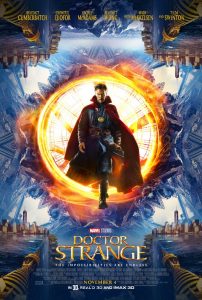 I know that Doctor Strange occasionally crosses over with other characters in the Marvel universe. I mean, maybe someday he’ll be at the heart of a big crossover event, but as of 15 years of Ultimate comics and 20 years of mainstream comics, he has only ever been at the fringes. And this is a thing that makes a lot of sense! Except for the artifact of history that Stan Lee decided to build a stable of shared characters in the early 1960s to compete with what DC had been doing, there’s no way anyone would say Strange fits into Marvel. Different genre than anything else they publish, and an entirely different style to boot. The only thing that comes close is Thor, and that’s only because they both share a love of stilted declamations.
I know that Doctor Strange occasionally crosses over with other characters in the Marvel universe. I mean, maybe someday he’ll be at the heart of a big crossover event, but as of 15 years of Ultimate comics and 20 years of mainstream comics, he has only ever been at the fringes. And this is a thing that makes a lot of sense! Except for the artifact of history that Stan Lee decided to build a stable of shared characters in the early 1960s to compete with what DC had been doing, there’s no way anyone would say Strange fits into Marvel. Different genre than anything else they publish, and an entirely different style to boot. The only thing that comes close is Thor, and that’s only because they both share a love of stilted declamations.
Do I have a point, here? Maybe. See, as promised in a blink and you missed it scene in The Winter Soldier, Marvel Studios has dropped a Doctor Strange film onto an unsuspecting[1] public. And sure enough, there is no apparent connection between it and any other movie they’ve made, at first glance[2]. But this is fine, because unlike some Netflix series I could name, Avengers Tower is prominent in the midtown skyline. Even better, both the characters with names and dialogue and the pedestrians in the background are becoming more comfortable with the bizarre turns of events that occur with increasing regularity in their world, just as befits a maturing familiarity with superheroes. I would not have thought to be so appreciative of a touch like that, but I don’t think I would have thought to expect such a touch in advance, and yet here we are. Normalcy. I dig it.
Anyway, all that’s about the world and setting. The actual movie, though? See, Stephen Strange is the best neurosurgeon in the world, but after a series of unfortunate events related (mostly) to his personality, he finds himself seeking alternative answers about his place in the world. It took Stan Lee and Steve Ditko maybe three pages to establish all of this before turning Strange from a doctor into a sorcerer, and it took the movie a good 45 minutes. Now, don’t get me wrong, Lee has never written under the auspices of “show, don’t tell”. Man loves to tell approximately as much (and as floridly) as PT Barnum did. But at the same time, 45 minutes is a lot of celluloid to squeeze out of three pages. Maybe there is some kind of middle ground? Like, I would never say they should have skipped the origin story entirely, because who has heard of Doctor Strange?
The good news is, that’s the only bad thing I have to say about the movie. It is a feast for the eyes, and moreso in 3D (unless that kind of thing makes you ill), and if the plot is a little bit bog-standard good v evil for modern Marvel, to be fair fantasy and spellcraft kind of lends itself to that. And even so, it’s far more nuanced than you might think from what I’ve said. Not-apparently-a-Baron Mordo in particular is fully realized in a way that never would have been predictable based on his turn in that same initial Lee/Ditko comic I mentioned before.
Tl;dr go see it, they’re not out of juice yet.
[1] I mean, if you discount years of announcements and months of previews. Look, nobody asked you.
[2] At second glance, this is completely untrue, but only because the writers made an effort to relevance that I cannot decide if I appreciate or oppose. That is in full on spoiler territory, however, so I shall say no more.
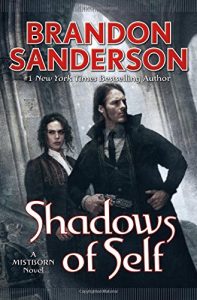 Back when I read
Back when I read 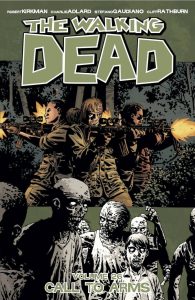 Despite myself, I’m continuing to like the way things are going with The Walking Dead. Choices of questionable morality are resulting in the fragile peace tumbling out of control, but of course the counter question is whether the peace was ever worth having in the first place. And, for that matter, would it have lasted?
Despite myself, I’m continuing to like the way things are going with The Walking Dead. Choices of questionable morality are resulting in the fragile peace tumbling out of control, but of course the counter question is whether the peace was ever worth having in the first place. And, for that matter, would it have lasted?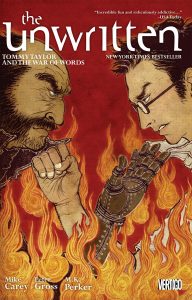 Thing the first: it is undeniable that I have not given this series the attention it deserves. Mike Carey gives
Thing the first: it is undeniable that I have not given this series the attention it deserves. Mike Carey gives 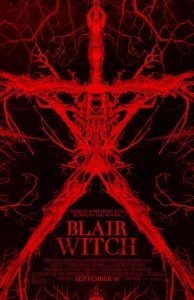 Did you know that
Did you know that 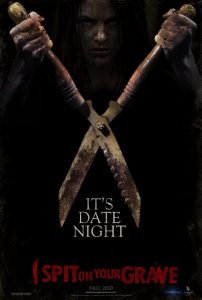 Many and more years ago, I saw a screening of the original
Many and more years ago, I saw a screening of the original 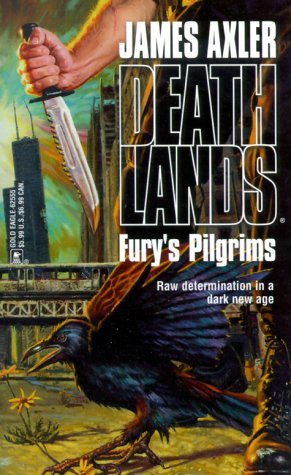 Did I mention that the Deathlands series is over, as of earlier this year? Probably. It’s just so weird to me that this thing has an ending, 30 years after it started. Especially when I compare to my infinite and infinitely expanding Marvel comics thing, you know? I mean, I’m still only to 1992 here, so it’s not like I’m in any danger of running out, it’s just strange.
Did I mention that the Deathlands series is over, as of earlier this year? Probably. It’s just so weird to me that this thing has an ending, 30 years after it started. Especially when I compare to my infinite and infinitely expanding Marvel comics thing, you know? I mean, I’m still only to 1992 here, so it’s not like I’m in any danger of running out, it’s just strange.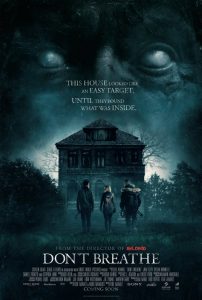 Often, I am loath to say that you should go into a movie not knowing anything, especially if it is a genre film. Once you warn people not to know anything, it’s a short jump to “there must be a big twist!” and an even shorter jump to “oh, I know what the twist is, sigh.” Luckily, the nature of the one line synopsis of
Often, I am loath to say that you should go into a movie not knowing anything, especially if it is a genre film. Once you warn people not to know anything, it’s a short jump to “there must be a big twist!” and an even shorter jump to “oh, I know what the twist is, sigh.” Luckily, the nature of the one line synopsis of 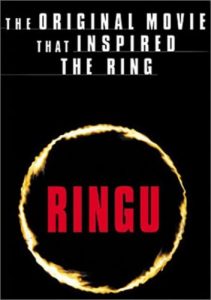 A thing I had never gotten around to watching is the Japanese movie that inspired
A thing I had never gotten around to watching is the Japanese movie that inspired 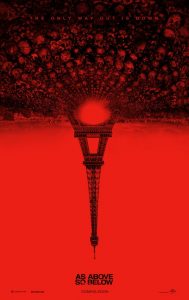 Perhaps it’s because I’ve been playing Rise of the Tomb Raider[1], but
Perhaps it’s because I’ve been playing Rise of the Tomb Raider[1], but